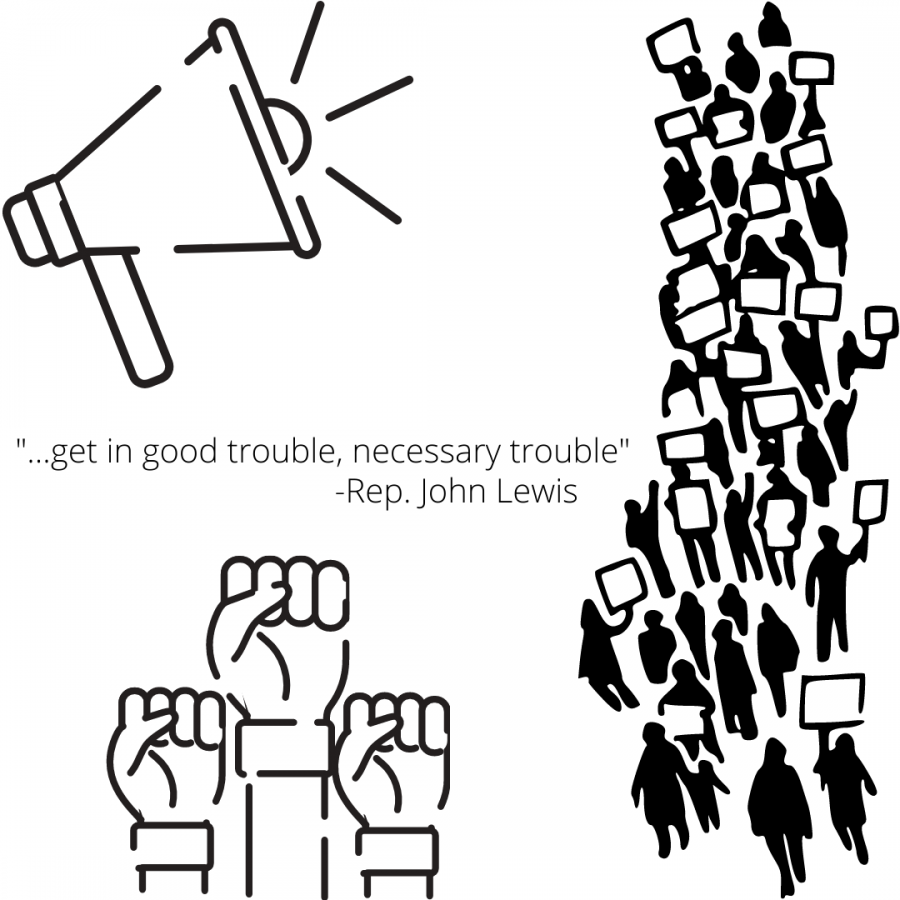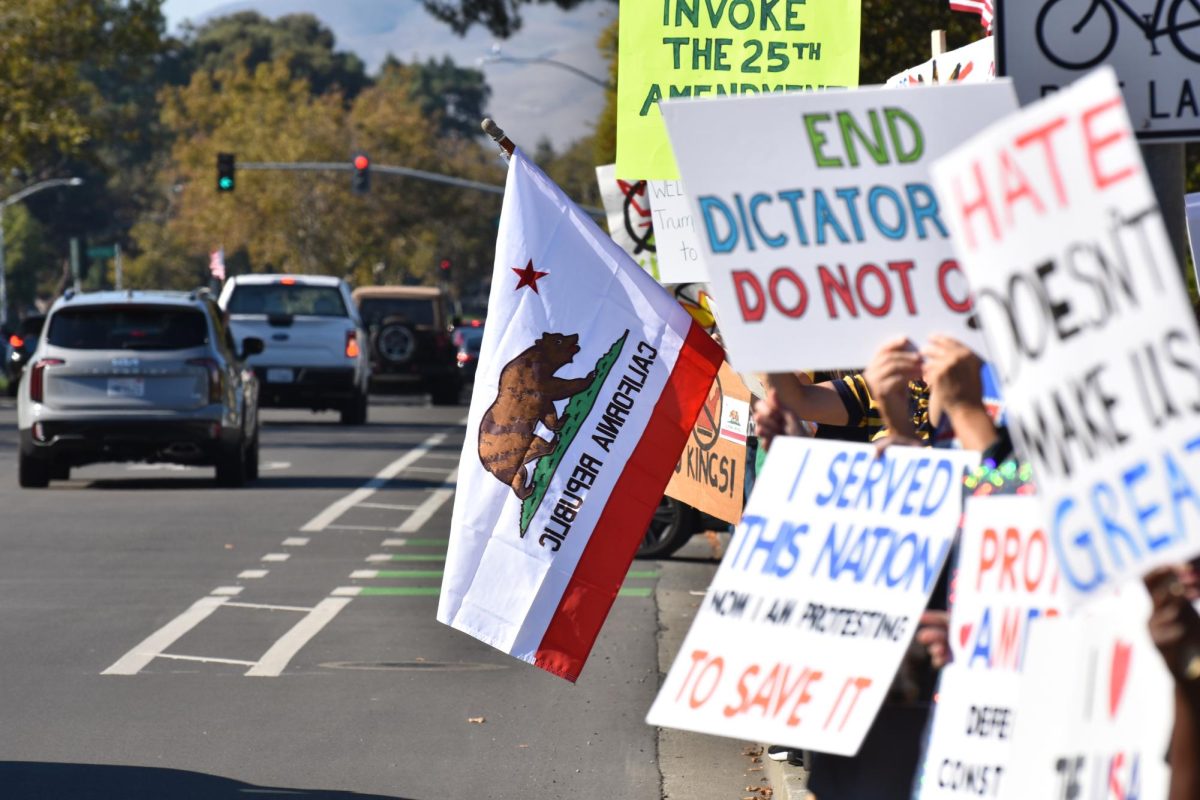The philosophy of political protest, and why it doesn’t justify the Capitol riots
Violent rioters invading a legislative building in order to protest a legitimate election is neither good nor necessary.
January 7, 2021
To express his opposition to slavery and the Mexican-American war, Henry David Thoreau refused to pay state poll taxes. The essayist, poet, and philosopher was then thrown into jail, an experience during which he pondered the importance of political resistance and was inspired to write “Civil Disobedience” (1849).
“Is it not possible to take a step further towards recognizing and organizing the rights of man? There will never be a really free and enlightened State until the State comes to recognize the individual as a higher and independent power, from which all its own power and authority are derived, and treats him accordingly,” wrote Thoreau.
Government, in essence, manages a country. People submit authority to an institution so that they can be protected in an orderly society, and they sacrifice individual liberties for the common good. This is a mutual agreement between the State and the individual, so, in theory, disobedience should be justified when one side of the social contract is breached.
Philosopher John Rawls further justified protesting in A Theory of Justice (1971), explaining that it’s “one of the stabilizing devices of a constitutional system, although by definition an illegal one…By resisting injustice within the limits of fidelity to law, it serves to inhibit departures from justice and to correct them when they occur.”
Throughout history, social justice movements have highlighted governments’ failures to protect the natural rights of their citizens.
Because South African apartheid institutionalized racism in the 1950s, the African National Congress led strikes and demonstrations across the country. When the people of India suffered under the British Salt Act in 1930, thousands mobilized for a 24-day march to the Arabian Sea coast. Following the 2018 school shooting in Parkland, Florida, students rallied and initiated the national March for Our Lives protest. After innocent African American citizens were killed by police officers in 2013, Black Lives Matter was founded to advocate for change.
One of the most notable eras of political protest was the Civil Rights movement, in which people sought to end racial discrimination in the United States. The recently departed Representative John Lewis was one of the nation’s foremost civil rights leaders.
On March 1, 2020, he recounted the Selma to Montgomery March (1965) on the Edmund Pettus Bridge. And as he reflected on civil rights struggles, Rep. John Lewis urged Americans to “Get in good trouble, necessary trouble, and help redeem the soul of America.”
However, the trouble caused by pro-trump rioters storming the Capitol Building on January 6, 2021 was neither good nor necessary. People trying to overturn the results of a legitimate election through force and violence cannot be likened to protests that fight for social justice.
“It is a riot masquerading as a protest,” said Virginia Delegate Todd Gilbert in a recently-released statement.
Trump-loyalists were demonstrating against an election process that did not violate the social contract. President-elect Joe Biden’s victory was not a governmental failure that infringed upon natural rights. The siege of the Capitol was not a result of oppression; it was a culmination of lies, disbelief, and conspiracy theories.
This attempted coup should not be justified as civil disobedience, good trouble, or even a rightful act of protest.






Lee Keybum • Apr 7, 2021 at 7:17 am
What about when Antifa took over 6 city blocks of privately owned businesses and the cities government center?